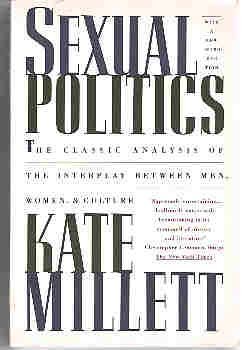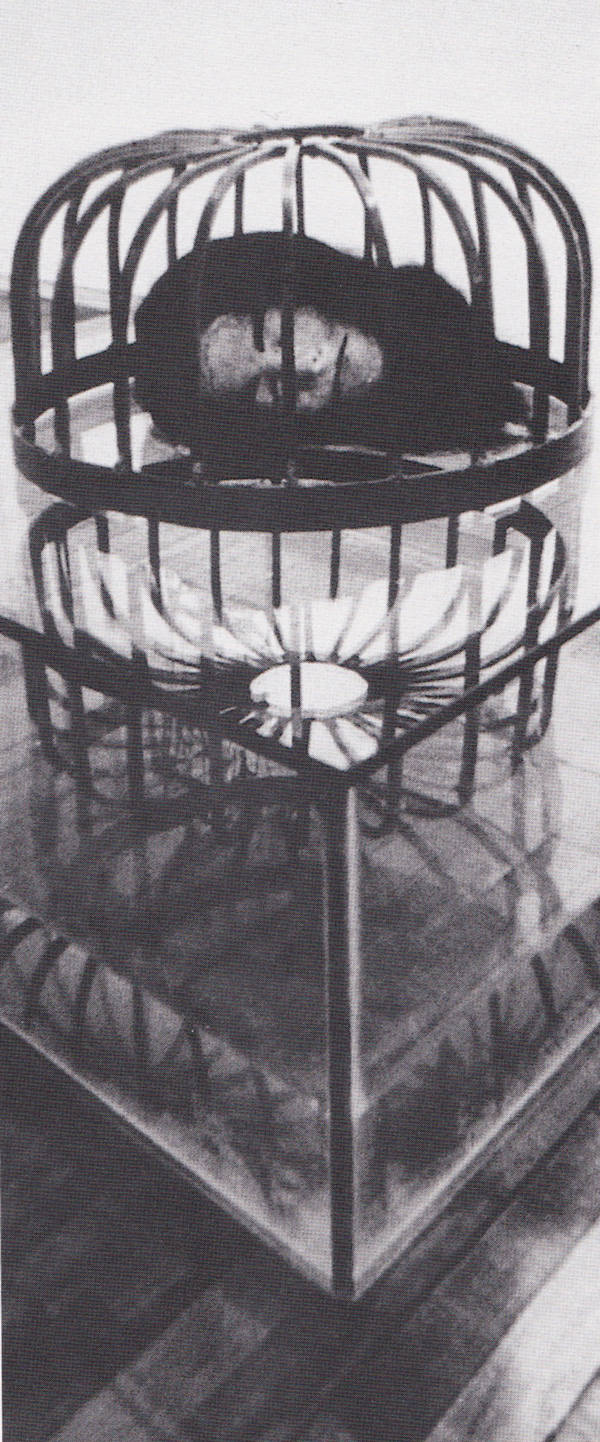

The Prostitution Papers (1971, revised 1976) began as a chapter for Vivian Gornick's Woman in a Sexist Society (1971).

With the media both praising and lambasting the book and its author, Millett and her work became a reification of "women's lib." Titled Sexual Politics, her work brought feminism to the forefront of cultural discussion. It sold 80,000 copies in the first six months of publication. in August, 1970, Millett's thesis was published by Doubleday. Finally Millett sets up Jean Genet, the French homosexual writer, as master social critic who reverses every status hierarchy in Western culture, including that of masculine and feminine. Lawrence, Henry Miller, and Norman Mailer. A second section documents the feminist revolution and male chauvinist counterrevolution in the history of ideas, and the third section exposes the phallic supremacism of three modern male literary idols: D. She sets forth the postulate that the oppression of women is essentially political, and then discredits religious, literary, philosophical, and "scientific" constructs erected by male supremacists to justify their advantage. This thesis may be considered the first major literary criticism of the new, or second wave of feminism. However, a speech delivered to a women's group at Cornell became the germ of her doctoral thesis. Millett's activism in the causes of women's liberation and student rights led to the loss of her teaching post at Barnard College in December of her first year. Since receiving her degree, she has taught as an instructor and visiting professor at several schools, including Bryn Mawr (1970), Sacramento State University (1973), University of California at Berkeley, Extension College (1974), SUNY Stonybrook (1997), and New York University (1998). in English and comparative literature at Columbia, where she received a doctoral degree with distinction in 1970. In 1968 Millett was hired to teach at Barnard College, and began work on a Ph.D. In 1961 she moved to Japan where she continued She began her teaching career at the Women's College of the University of North Carolina. Hilda's College, Oxford, and earned first honors. She studied literature for two years at St. Millett graduated from the University of Minnesota, magna cum laude and Phi Beta Kappa, in 1956. Her mother took a job selling insurance, and the girls helped support the family. Her father, a contractor, abandoned the family when Millett was fourteen.

The second of three daughters, Kate Millett attended parochial schools in St. Paul, Minnesotaĭaughter of James and Helen Feely Millett married Fumio Yoshimura, 1965 (divorced 1975)


 0 kommentar(er)
0 kommentar(er)
